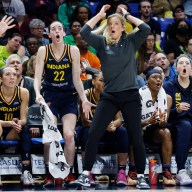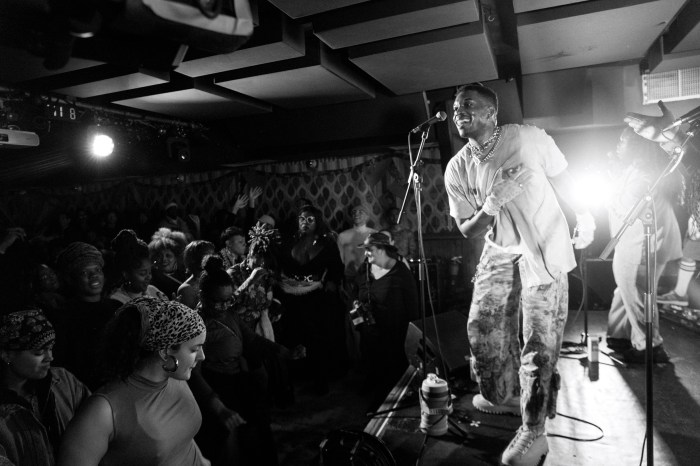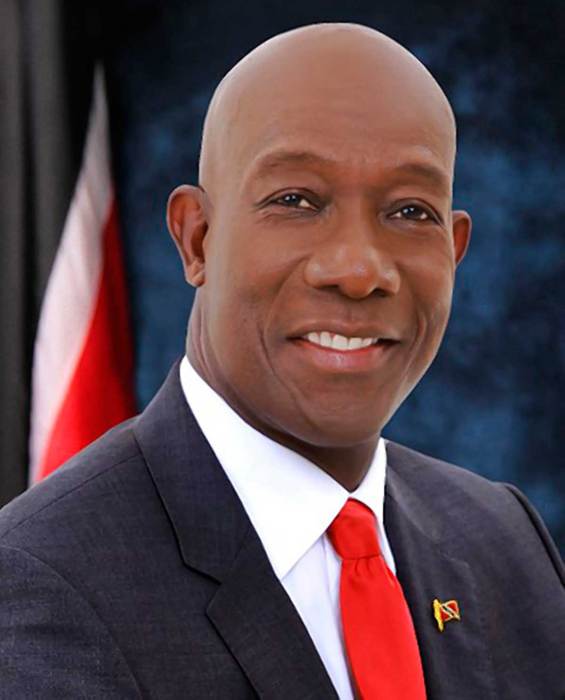 This thing, which is probably a bitch to make, determines the outcome of many big-time college basketball games.
This thing, which is probably a bitch to make, determines the outcome of many big-time college basketball games.
I found myself watching the Final Four on Saturday night, because even though Gonzaga, who I had winning it all, lost two weeks earlier, miraculously I had a financial stake in the Wichita State Shockers. Before you click away, fear not, I’m not going to dive into this too deeply, because no one likes to listen to Tales From Your Co-Workers’ March Madness Bracket, never mind reading about it from a self-aggrandizing sports columnist. Bottom line: Shockers beat the Cardinals=Yours Truly hauls in some decent coin.
Anyway, I’ve written about the litany of terrible things wrong with college basketball in this space before. But off the top of my head, the curious shot selection, disjointed offensive sets, mercurial coaches, and that reprehensible organization running the gig, otherwise known as the NCAA, all immediately come to mind. But I overlooked a detail that reared its ugly head in the semifinal of the NCAA Tournament.
With his team trailing by three in the waning moments, a Wichita State player grabbed a rebound off a missed free throw (I’d look up his name, but then I’d have to see his face and that would only induce anger. I digress, back to the happenings.) Because he’s a college kid, instead of calling a timeout the dude panicked and inexplicably took a dribble and quickly was wrapped up by a Louisville player.
“Jump ball!” I yelled to no one in particular at the airport bar.
Nope. Possession arrow.
POSSESSION ARROW.
POSSESSION ARROW!!!
Cardinals ball. Just like that, the Wichita State Shockers would go on to lose and my dreams of winning my bracket (and collecting a hefty, much-needed $500 payout) were gone in an instant.
Why, in a game that rewards height and athletic prowess, the rules eliminate both attributes is beyond me. There are so many words, but I’ll leave it described as “grating.” I mean, we might as well flip a coin. Better yet, let’s play Rock, Paper, Scissors. Does this make sense? Is this real life? Why am I only writing in rhetorical questions? Far too often I find myself mad at the same stuff with sports. Today it’s the possession arrow; tomorrow it will be something new. And since I have a bitter case of the Mondays, here are three more things I’d like to complain about or change in sports.
The Hall of Fame Conundrum
Look, no matter what the league or sport, I’m not a big Hall of Fame guy. Don’t get me wrong, I love history and I’m not opposed to the idea of having a Hall of Fame, but I think it should serve as a museum more than a sacrosanct place where Legends of Sport rest eternally. Give me a break. This isn’t Hollywood. It’s not Arlington Cemetery. We’re dealing with sports.
If you care, I have no cogent logic about the matter that you haven’t heard before: I believe the disparity in different eras makes things dicey (particularly with racial barriers, medical improvements and the way the game is played); whether we acknowledge it or not, performance enhancing drugs are much more rampant in today’s games in than previous decades; lastly, I think committees take themselves (and the process) far too seriously.
Despite all this, I understand its purpose and the honor that goes with being selected. But one thing that kills me about the entire process is how players or coaches fail to make the hall of their respective sport one year, and then make it the next. I understand there are limits to how many players can get in, percentage of votes need to be reached and all that. But tell me how this makes sense: Why, exactly, did Bill Parcells make the cut to head to Canton to be inducted to the NFL Hall of Fame in 2013 when he failed the previous three years?
I think The Tuna deserves to be inducted. But this all seems silly, doesn’t it? Did Parcells win another Super Bowl in the interim? Did he serve as a consultant? What changed? I say screw the percentages and the “prestige” of being a first-ballot Hall of Famer. If you’re in, you’re in. It shouldn’t matter who else is eligible at the same time. Good? Good.
Speed It Up
Major League Baseball’s belief in traditionalism is cute, but it’s also to its detriment. It’s a crutch that has precluded the league from using instant replay until recently and that has caused the league to overemphasize the importance of the All Star Game by giving it the consequence of home field advantage to the winning side in the World Series. Sometimes, in spite of itself, MLB makes changes that, you know, actually work out. I’m a big proponent of the play-in game to determine the Wild Card. Again, I have no compelling reasoning you haven’t heard before: The play-in game puts bigger onus on teams winning their division and, ultimately, creates more drama (always a good thing in sports).
Let’s keep this momentum going. Here’s a radical idea: The Pitch Clock. Baseball moves entirely too slow; who is against setting a 20-25 second (plenty of time) limit for pitchers to deliver their next pitch? If they fail to do so, they are charged a ball. Hitters, meanwhile, can only step out of the batters once an at-bat. Do it for me, MLB. DO IT FOR ME!
The Legacy Player
My dirty little secret: I never want to see Paul Pierce traded. Ever.
Danny Ainge doesn’t share this sentiment; in fact, Pierce has been dangled at the trade deadline for two straight years. I just don’t think it’s worth what Pierce means to the franchise historically.
For my money, Pierce is the greatest Celtic since Bird and absolutely belongs in any Top 10 All-Time Celtics list. His 23,975 career points rank 25th in NBA/ABA history. And no player scores quite the way Pierce does. He wobbles around off the dribble, somehow getting to his spot; knows how to draw contact; and became deadly from 3-point territory later in his career (The Truth is fifth all-time in made 3-pointers.)
There are other athletes like Pierce, of course. Tom Brady and David Ortiz come to mind. I’m almost ready to put Zdeno Chára and Vince Wilfork on that list too. And it goes beyond Boston athletes; I don’t need to see Derek Jeter play for the Dodgers or Peyton Manning play for the Broncos.
The resolution? Each league should institute a Legacy Player. Kind of like the Franchise Tag. The Legacy Player’s salary would be an average of all the other Legacy Players’ salaries. In order to meet the requirements of eligibility, a player must have 10 years of service with the same team. Said player has to have won a championship with the team and agree with the designation, but their salary cap hit wouldn’t go against the team, meaning the team couldn’t claim any luxury tax issues or other tomfoolery as reasons for letting a player with an emotional connection to the city walk. Moreover, a team can only have one player designated as their Legacy Player, and it locks the player up until he’s 40 years old or wishes to retire.
There are plenty of financial and logistical issues with this suggestion. And that’s fine, but again, from a fan’s perspective, who is against this?
Follow Ryan Hadfield on Twitter @Hadfield__
















